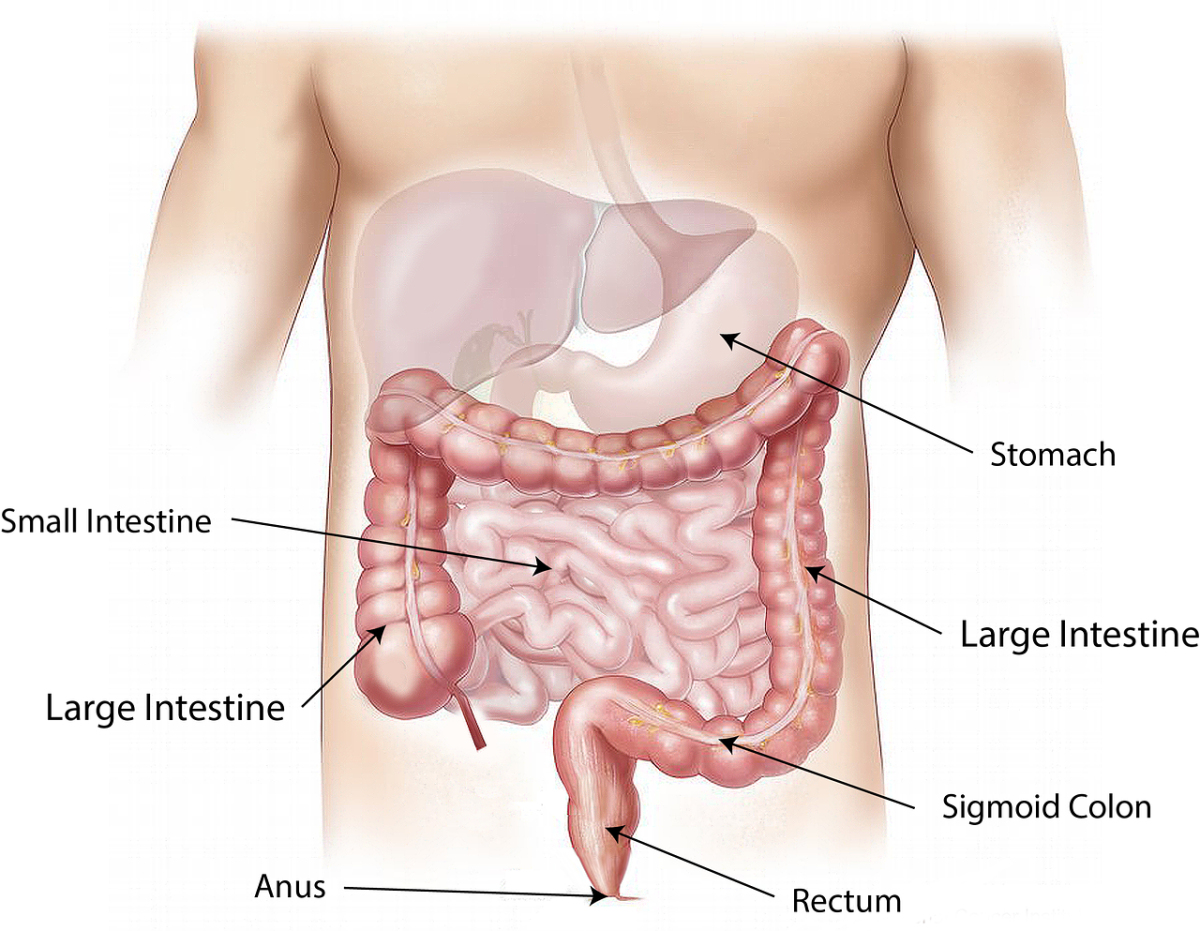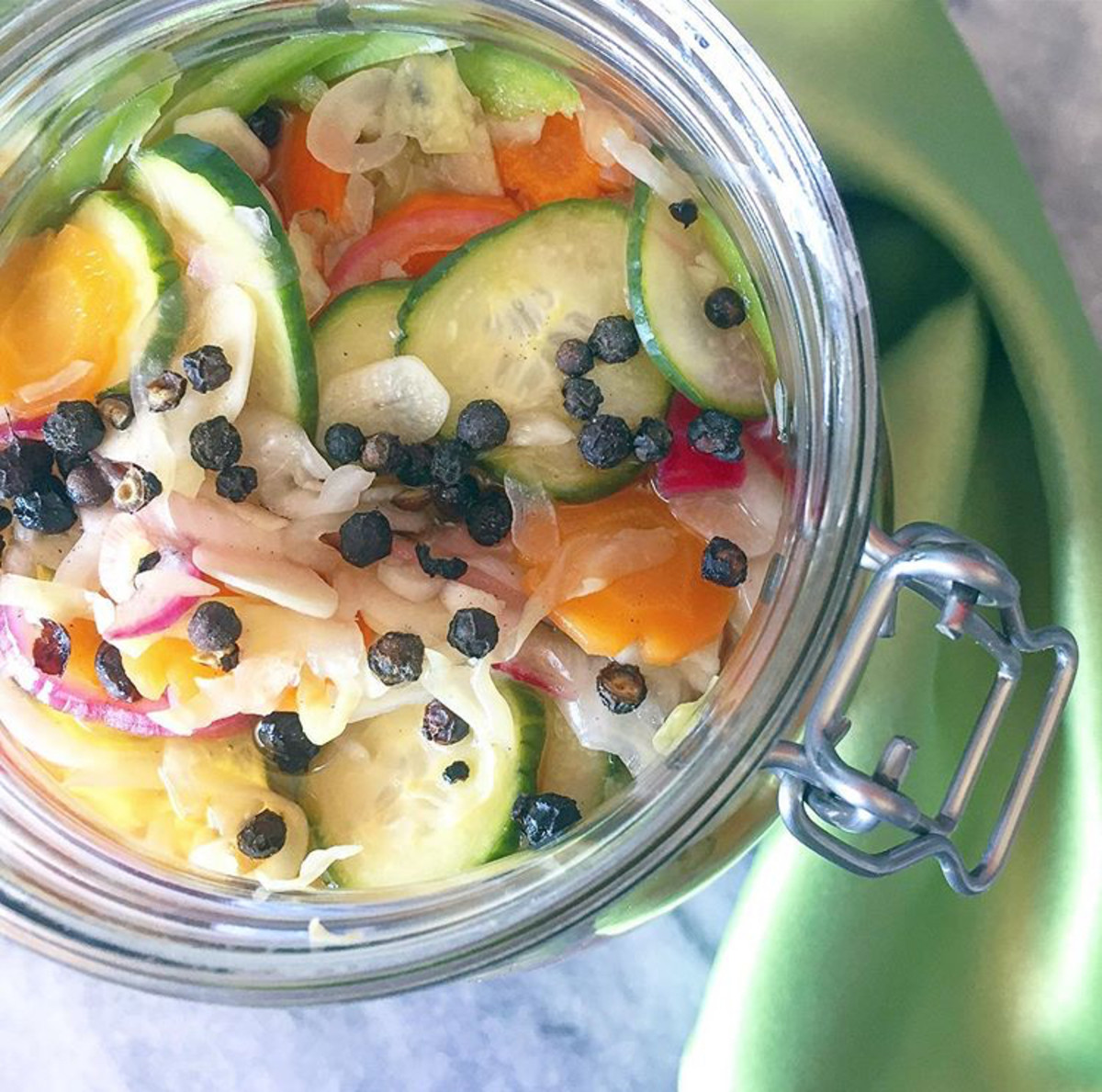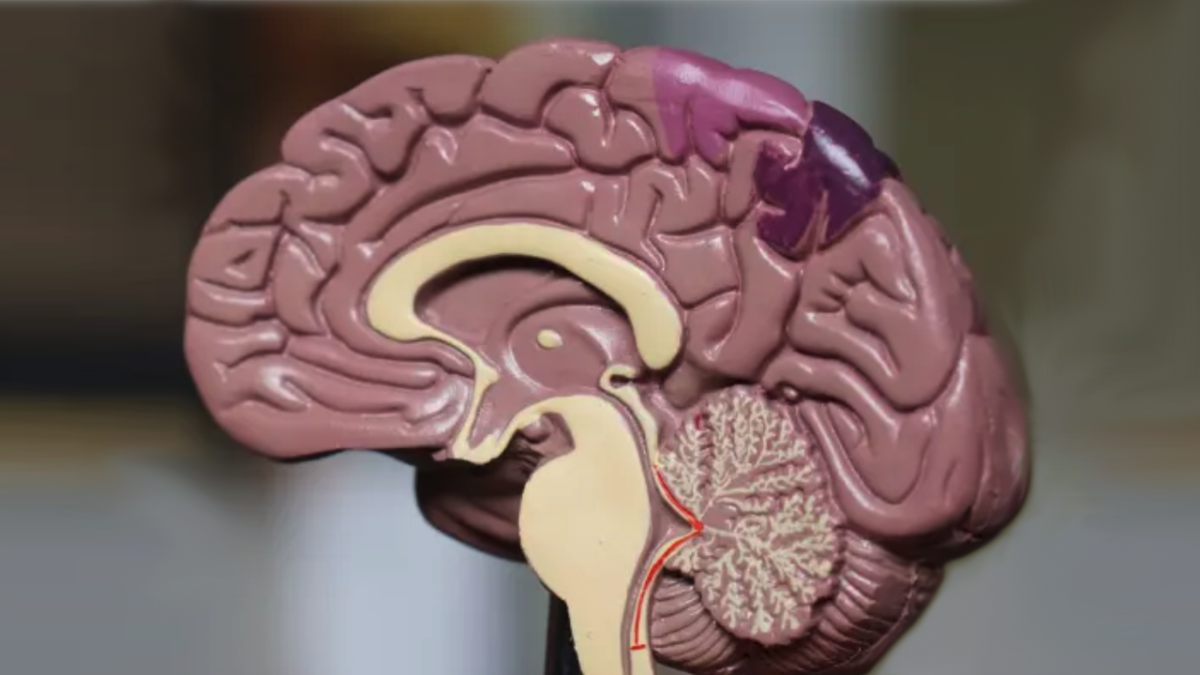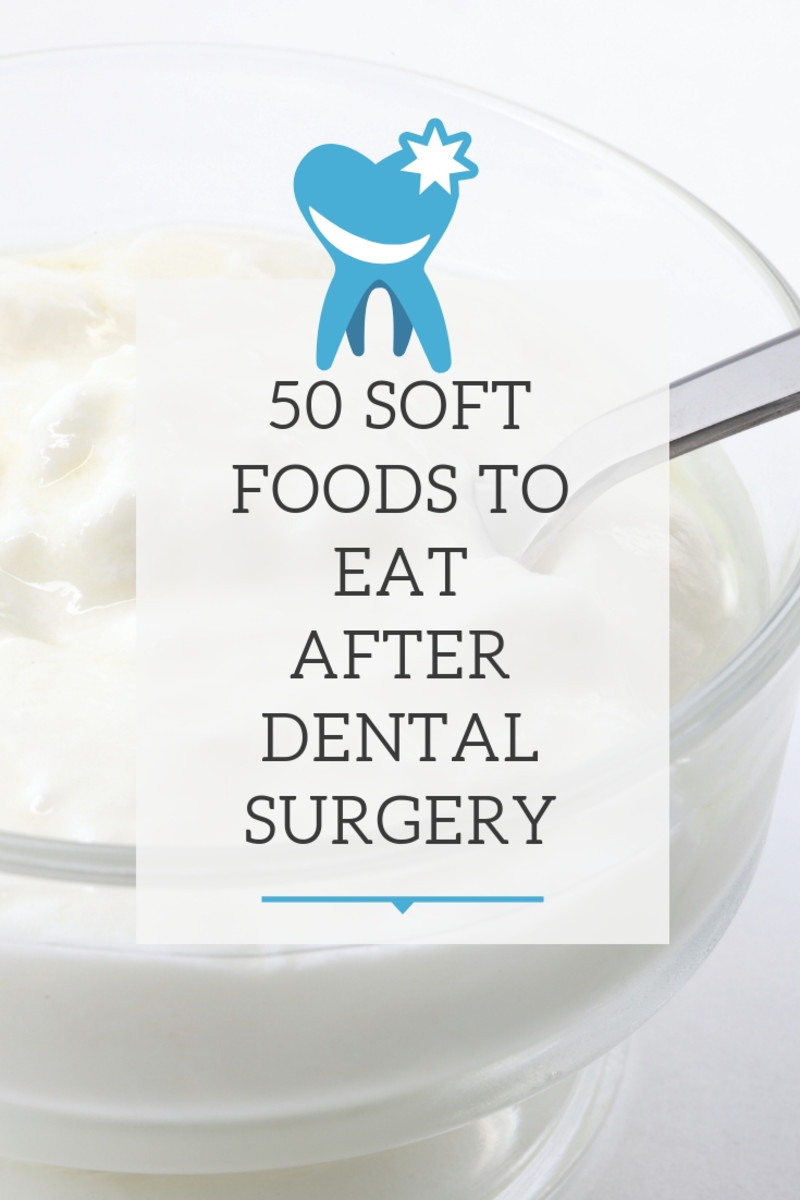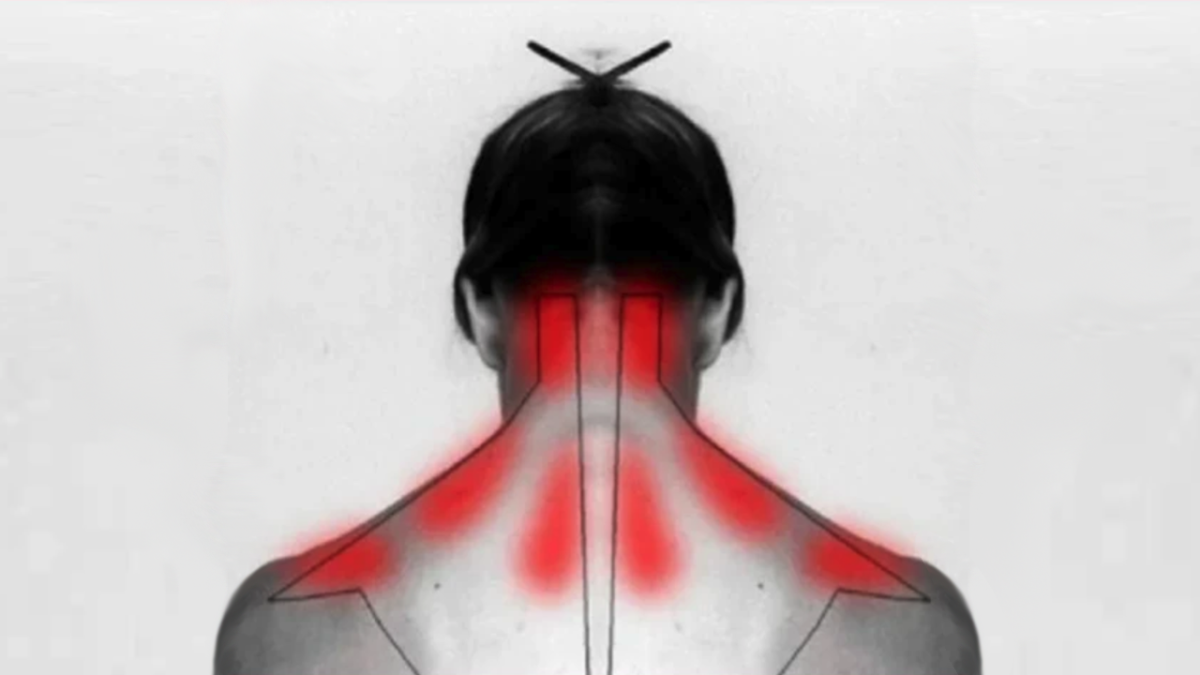Improve Your Health by Supporting Your Microbiome

Gut Bacteria and health
Seventy percent (70%) of our immune system response lies in out gut. It effects obesity, or our lack of it, by the amount of fat absorbed from food. The brain-gut connection affects our mood, and hunger to name just a few. By improving our microbiome we can improve our health.
At a fundamental level our gut bacteria digests the food we eat as it passes through our intestines. Out of the thousand or so gut bacteria scientists have identified, any individual (on average) will have around 160 different species of bacteria colonizing their gut.
Obesity: Scientists studying gut bacteria determined the gut bacteria from an obese person is different than the gut bacteria from a thin person. Would you care to venture to guess whose bacteria flora absorbs more fat from food? If you guessed the obese person, you would be correct. Obesity has been associated with a decrease in bacterial diversity. The ratio of Firmicutes to Bacteroidetes varies whether a person is obese or thin. Typically, obese people have a higher ratio of Firmicutes to Bacteroidetes. While thin people have a higher ratio of Bacteroidetes to Firmicutes. Although fecal transplants for obesity is a ways off, transplants for other ailments, like IBS and diabetes are being studied.
One particular strain of probiotic Lactobacillus Gasseri helps significantly with fat reduction and is commercially available in pill form, shown at the end of this article.
Diabetes: The gut bacteria of diabetics differ from non-diabetics. Scientists are investigating whether gut bacteria can help with diabetes and glucose tolerance.
Epigenetics: The microbiome influences gene expression in the host.
Healing Fractures: The microbiome may also help heal bone fractures. Orally administered Lactobacillus casei Shirota helped improve fracture healing in the elderly.
Brain-Gut: Your gut contains more than 100 million nerves, more than in either the spinal cord or the peripheral nervous system. Many scientists nickname the gut’s neural tissue a second brain. Technically identified as the Enteric Nervous System (ENS). While this second brain doesn’t help our primary brain learn and solve calculus equations, it does do the heavy lifting with controlling digestion. Your brain and gut are in constant communication. Strong emotions (fear, anger, depression) and stress will affect your digestive system. Surprisingly, there is more communication from your gut to the brain than vice versa.
Mood: Scientists are now adding microbiome to the Brain-Gut axis. They have found that altering a person’s gut bacteria by administrating prebiotics and probiotics can improve depression, reduce anxiety, and reduce stress without the side effects usually associated with mood altering drugs. Two probiotics used in the study are Lactobacillus helveticus R0052 and Bifidobacterium longum R0175.
The exact mechanism by which probiotics alter mood is being studied.
It appears the chemicals produced by the bacteria influence signals being sent to the brain via the vagus nerve.
Other research shows that Bifidobacterium produces the amino acid tryptophan. Tryptophan is a precursor to the neurotransmitter serotonin, that is known to influence mood. Low serotonin is associated with depression, and drugs that alter serotonin levels are used to treat depression.
The third mechanism studied is influencing gene expression in the brain.
Reality Check
We are still a ways off before prebiotic and probiotic style treatments become available for diabetes and depression. Dose studies need to be performed, and everyone’s gut bacteria is different as our responses. Therefore, deriving a standardized treatment protocol is difficult. The mood-altering effects from modifying one’s microbiome may take days or weeks to occur. But this doesn’t stop us from getting started on improving our own microbiome. Read further for information to improve your microbiome.
Few of us want to focus on poop, even though we all expel waste from our digested food. The fecal matter exiting our body has a story to tell regarding our microbiome.
Are You a Super Pooper?
Mice fed a high caloric diet develop higher levels of Firmicutes. However, a diet high in fruits and vegetables results in a more diverse bacteria with lower levels of Firmicutes and increased levels of Bacteroidetes, which is associated with lower weight. (https://www.ncbi.nlm.nih.gov/pmc/articles/PMC5111532/pdf/238.pdf)
What is in your microbiome? What is your percentage of Firmicutes? If you are curious, you can find out. For a donation, the US American Gut project will send you a kit with instructions for submitting a sample for analysis. Doing so will not only give you a detailed report of your microbiome, but you will be participating in the knowledge bank of bacteria that reside in the human gut across the globe and populations. To participate, go to:
Here is a sample printout of what you will receive:
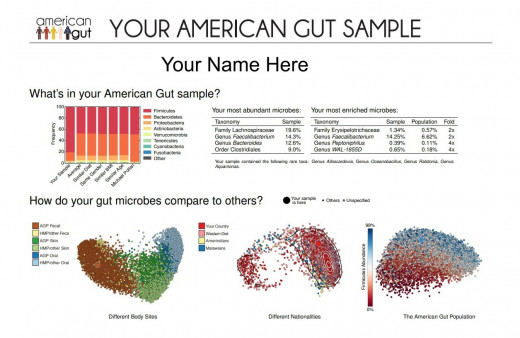
Interesting, Yes — But Useful?
The human food project is designed to help scientists further human knowledge of the human microbiome. As interesting as the human food project is, the results are not particularly useful. There are other tests that check for irregularities in your microbiome.
One such test is offered by Life Extension Labs. It is a conventional Fecal-microbiome test that checks for a wide variety of markers. Digestion/Absorption, Microbiome, Inflammation, Immune Response, Infection, Parasites, Yeast, and more.
You do not need a doctor’s prescription to order the test, but it will be an out-of-pocket expense. To order the test and instructions, go to lifeextension.com. Once on their website, go to “Lab Testing,” and on the pull-down menu under “Lab-Testing,” select “Digestive.”
The results from this test are written in an approximate 20-page report on the health of your digestion and microbiome. There is a sample report available for you to review on the order page.
This testing and information can lead to improving your microbiome to improve your health.
Improving your microbiome:
Probiotics
Probiotics are not just the bacteria in our gut, they are also micro-organisms we eat, that travel through our digestive system to the gut and help our existing bacteria break down food. Probiotics are the live bacteria featured in many yogurt commercials and ads touted for their health benefits. So, what can you do to improve your gut bacteria diversity? Eat probiotic foods. Probiotics are available as supplements, in fermented foods like yogurt, kimchi, sauerkraut (non-pasteurized), and aged cheeses.
You have about 3.5 pounds of probiotic bacteria living inside your body. Not just in your gut, but all over. We are focusing on the probiotics in your gut.
Prebiotics
Prebiotics are a food source for our probiotic bacteria. Prebiotics are the nondigestible plant carbohydrates, commonly called fiber. In addition to feeding the good bacteria in our microbiome, fiber adds bulk to our food and increases satiety. Prebiotics will stimulate the growth of good bacteria in your gut.
The takeaway is, eating fruits like apples, vegetables like broccoli (prebiotics), and yogurt (probiotics) are easy ways to improve the microbiome of your gut bacteria.
To learn more about probiotics, go to: https://probiotics.org/amazing-facts/
The Probiotic for Fat Loss
The probiotic Lactobacillus Gasseri has been shown to modestly decrease abdominal visceral and subcutaneous fat by 4.6% over the 12-week double-blind study period 2. This works out to an average 1.4% drop in body weight, 1.5% drop in BMI, and a 1.8% drop in waist circumference. This probiotic is available from Swanson Vitamins.
Resveratrol
Resveratrol has numerous health benefits that are outlined in the supplements chapter. In relationship to our gut biome, resveratrol has a protective effect, well at least in mice. Mice fed a high caloric diet of sugars and fats developed a microbiome with higher levels of Firmicutes. Well, if you add resveratrol to their high caloric high fat diet, it blunted the obesity-related changes in their gut bacteria. This may be the mechanism by which resveratrol blunts weight gain on a high fat diet. Resveratrol may be considered a prebiotic.
Probiotics for 50+
As we age the diversity of our gut bacteria diminishes. One probiotic is tailored with 15 probiotic strains (including Bifidobacterium) to increase the bacterial diversity of the aging gut. What I like about this particular product is that it does NOT contain any probiotic that are not resident to the human gut.
Drink non-fluoride water
I prefer my water without any government sanctioned Neurotoxins, thank you. So I purchased a small one-gallon table top water distiller and two one-gallon jugs. I use distilled water for all my beverages and coffee. Your gut will thank you.
Eat Organic
To whatever point you can or is possible, eat organic fruits, vegetables and meat.
© 2020 John Iovine

